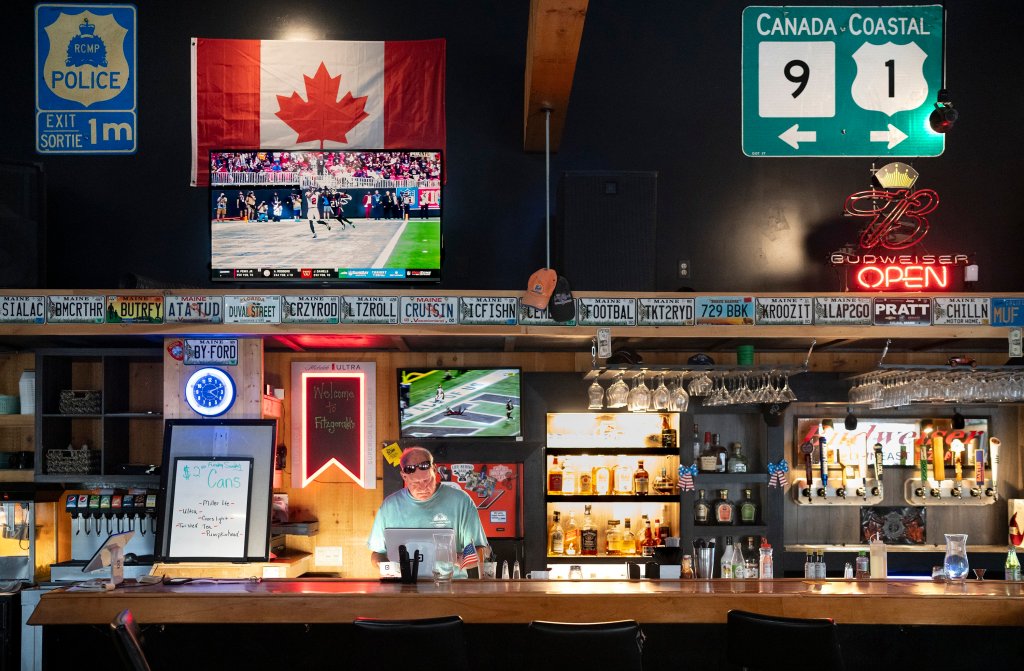
CALAIS — At Fitzgerald’s Tavern, Canadians get what they pay for.
“They like our prices over here because our beer prices are cheaper and they get a better drink,” said the bar’s owner, Tim Krug.
Outside his television-lit barroom, it’s a drizzly September day in the Washington County border town. A small crowd emptied onto the sidewalk when the Sunday matinee showing of “The Conjuring: Last Rites” ended. Otherwise, it’s quiet in Calais.
That’s normal, to an extent. Tourism evaporates after Labor Day, locals say. But this year, it’s even quieter.
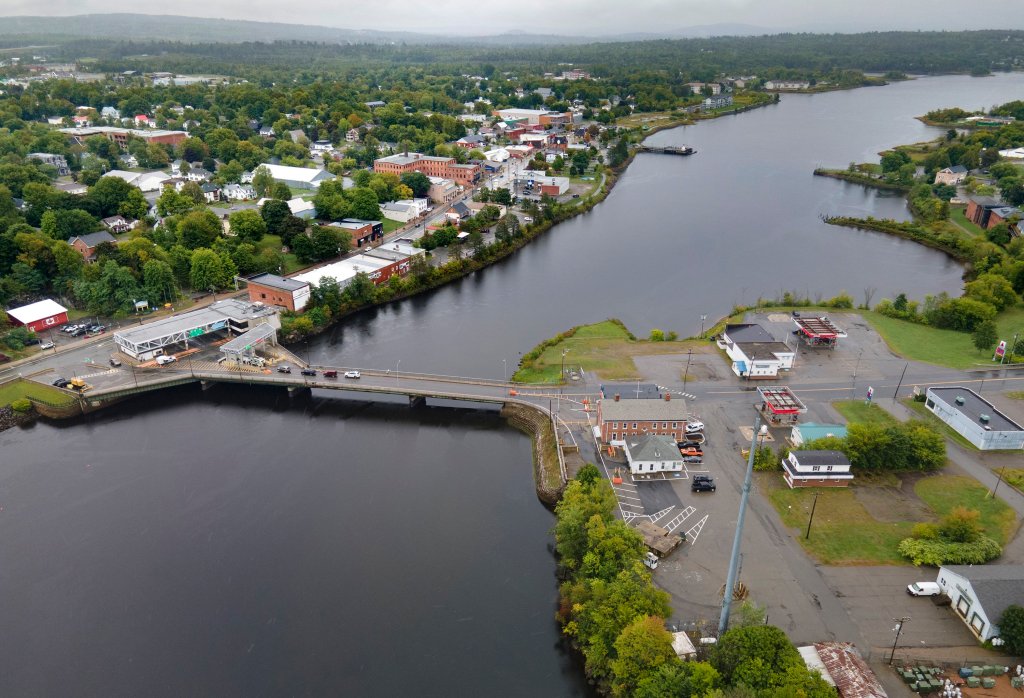
Inside Fitzgerald’s, there are fewer Canadians than Krug is used to — about 75% fewer, he estimates.
“I wish they’d come back across,” he said.
Numbers released by U.S. Customs and Border Protection on Friday show 115,000 fewer people crossed Maine’s border with Canada in August compared with the same month a year ago. That’s a drop of 28%.
August’s numbers are in line with a growing trend established around the time President Donald Trump began to make disparaging remarks about the country, calling for it to become America’s 51st state, and threatened the country with a volley of tariffs.
For months, Maine’s elected officials, tourism experts and business owners have wrung their hands in anticipation of how the president’s actions and rhetoric might impact the state’s economy, which relies heavily on tourism.
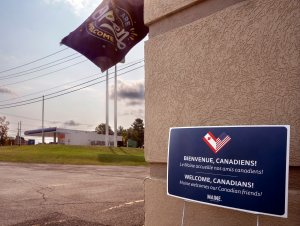
Little signs that declare “Welcome, Canadians! Maine welcomes our Canadian friends!” in English and French populate the windows of border-community businesses.
Even with a comparatively weaker currency, Canadians pay over $1 per gallon less for gas in Calais than just across the St. Croix River in St. Stephen. Still, gas stations on the American side say they’ve been hit hard.
At one station, sales are down 60%, according to a clerk who asked that their name not be used because they were not authorized to speak to the media.
The precipitous drop-off began in January — the month Trump was sworn back into office — the clerk said in a matter-of-fact tone.
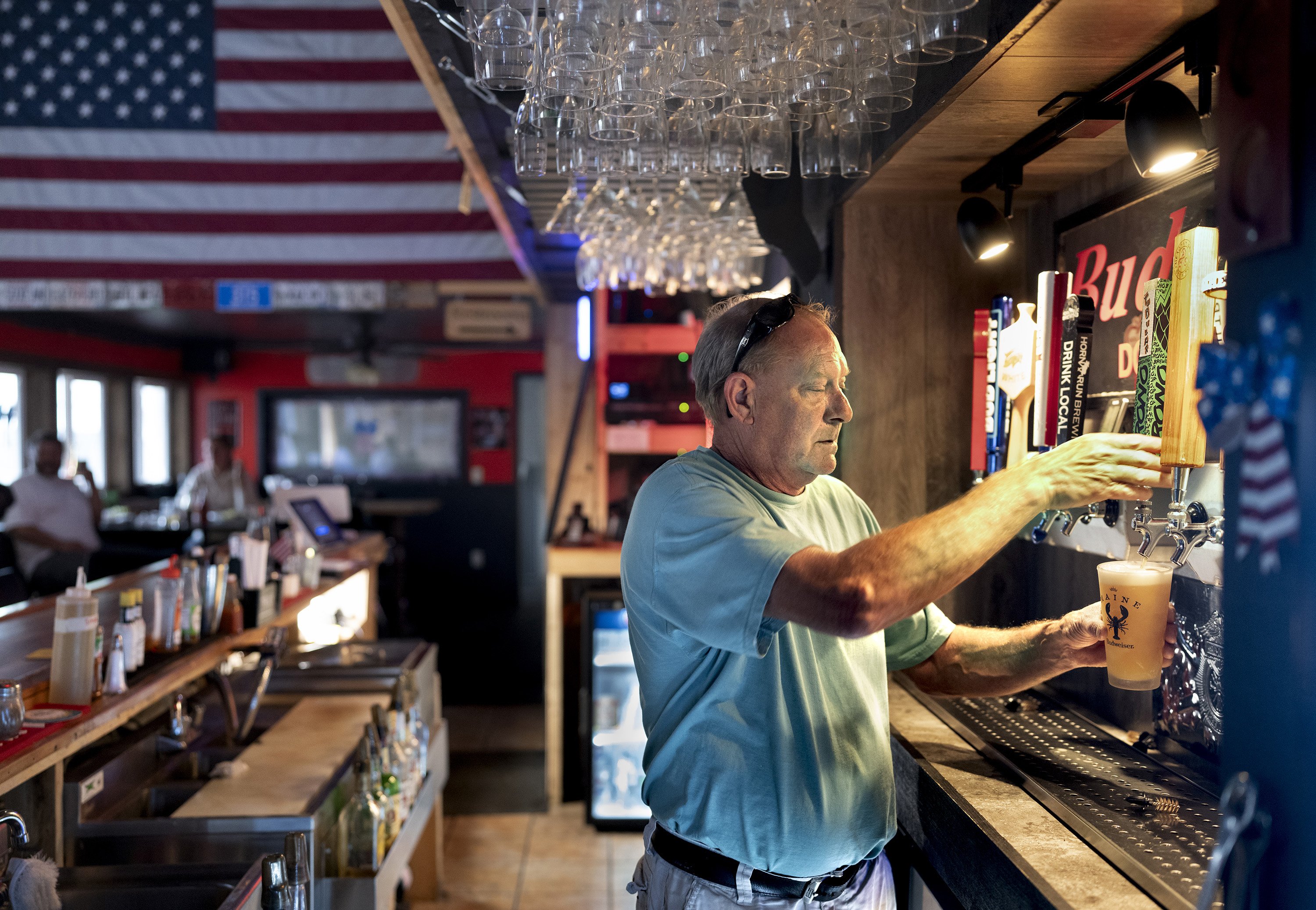
HESITANT TO BLAME POLITICS
Krug, the bar owner, is hesitant to blame anything on politics. The summer’s-end slump is always hard for business, and he’s struggled to get Canadians to his watering hole before. Although border-crossers make up a small portion of his clientele — just 5%, he estimates — he does notice their absence.
Kinga Mcdonald and her husband, who live outside St. Stephen, are seated at the bar inside. They stopped in for a pizza and beer after the horror flick ended.
“People do kind of say things under their breath about us going over, still,” Mcdonald said.
The communities of Calais and St. Stephen are deeply interconnected. But the Canadian town nearly canceled its involvement in a transnational parade scheduled last month as part of the annual International Homecoming Festival in August due to a lack of participation.
“It feels like half our community is gone,” said Sarah, a Calais resident who declined to provide her last name.
The lack of Canadian license plates in the local Marden’s parking lot was, she said, “astounding.”

In Houlton, almost 100 miles northwest of Calais, Jane Torres uses that same simple license-plate barometer and agrees fewer Canadians seem to be around.
“Everybody’s mad,” she said. “I mean, we’re the aggressor. I totally understand why they’re upset.”
WHERE’S JOHN?
Torres sits on the City Council and is the executive director of the Greater Houlton Chamber of Commerce and co-founder of the County Co-Op & Farm Store.
There was a “very noticeable” dip in summer patronage from Canadians in Houlton, Torres said as she slathered butter on breakfast sandwiches in the co-op kitchen.
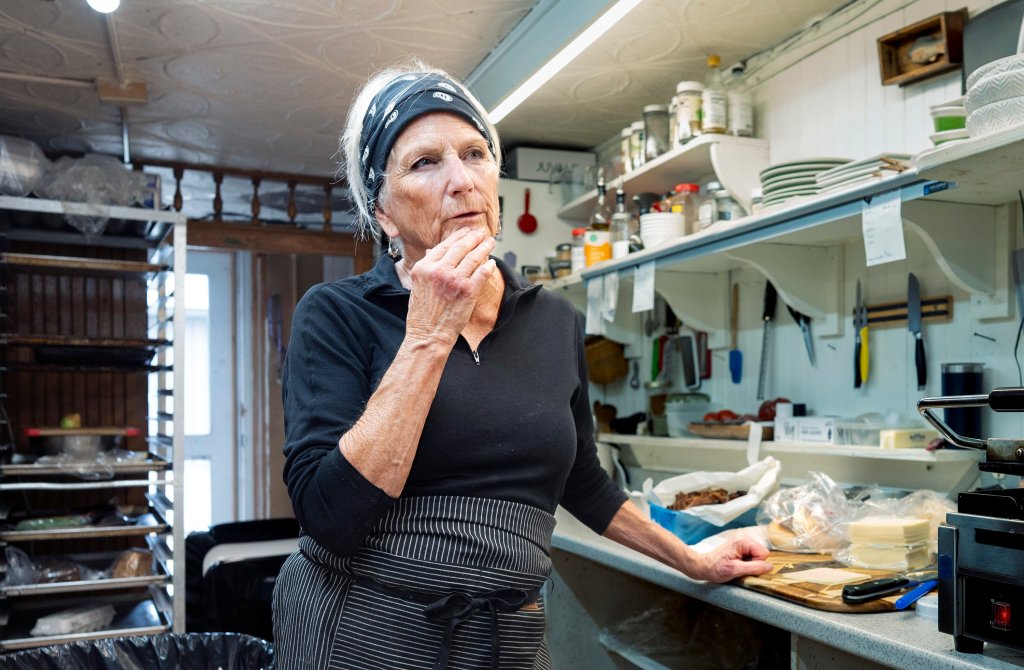
The Canadian presence might be starting to tick back up, Torres speculated.
Indeed, there were about 1,000 more crossings into Houlton in August than July, according to the data released Friday. But Houlton’s numbers this August are down almost 40% compared with 2024.
“I haven’t seen John at all this year,” Judy Joklik said from the back of the kitchen as she dumped bread dough out of its proofing basket.
John is a musician in Woodstock, Houlton’s Canadian counterpart 10 miles across the border, who used to show up every Saturday.
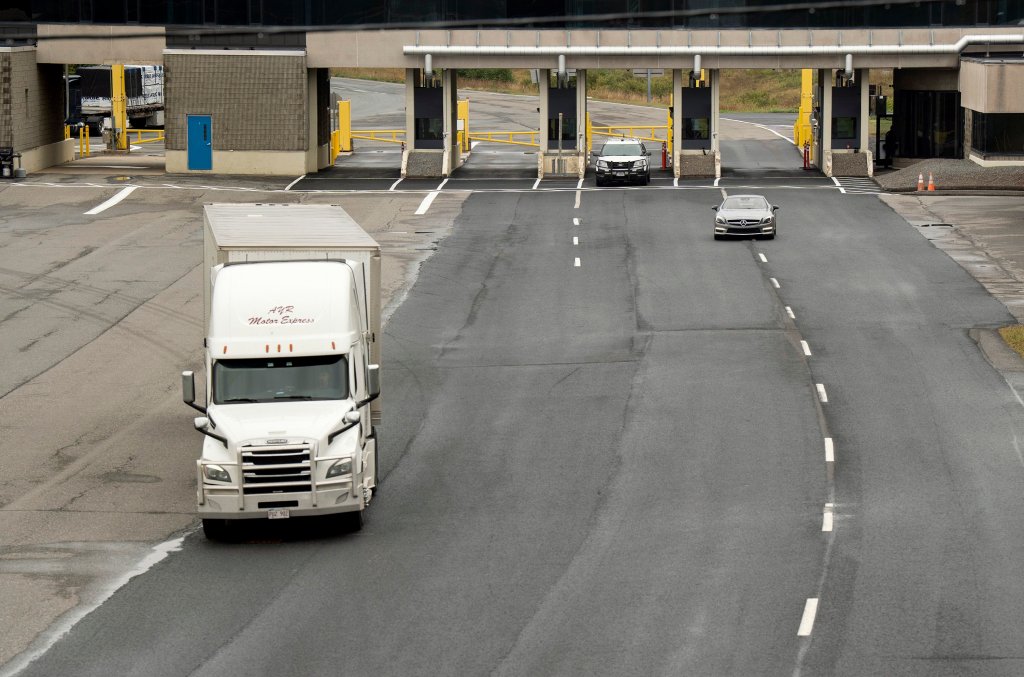
“No, no,” Torres murmurs in agreement.
They recall the usual order — four breakfasts, a few lunches and some produce — that they haven’t prepared for him all year.
Reuben M. Schafir is a Report for America corps member who writes about Indigenous communities for the Portland Press Herald.

We invite you to add your comments. We encourage a thoughtful exchange of ideas and information on this website. By joining the conversation, you are agreeing to our commenting policy and terms of use. More information is found on our FAQs. You can modify your screen name here.
Comments are managed by our staff during regular business hours Monday through Friday as well as limited hours on Saturday and Sunday. Comments held for moderation outside of those hours may take longer to approve.
Join the Conversation
Please sign into your CentralMaine.com account to participate in conversations below. If you do not have an account, you can register or subscribe. Questions? Please see our FAQs.